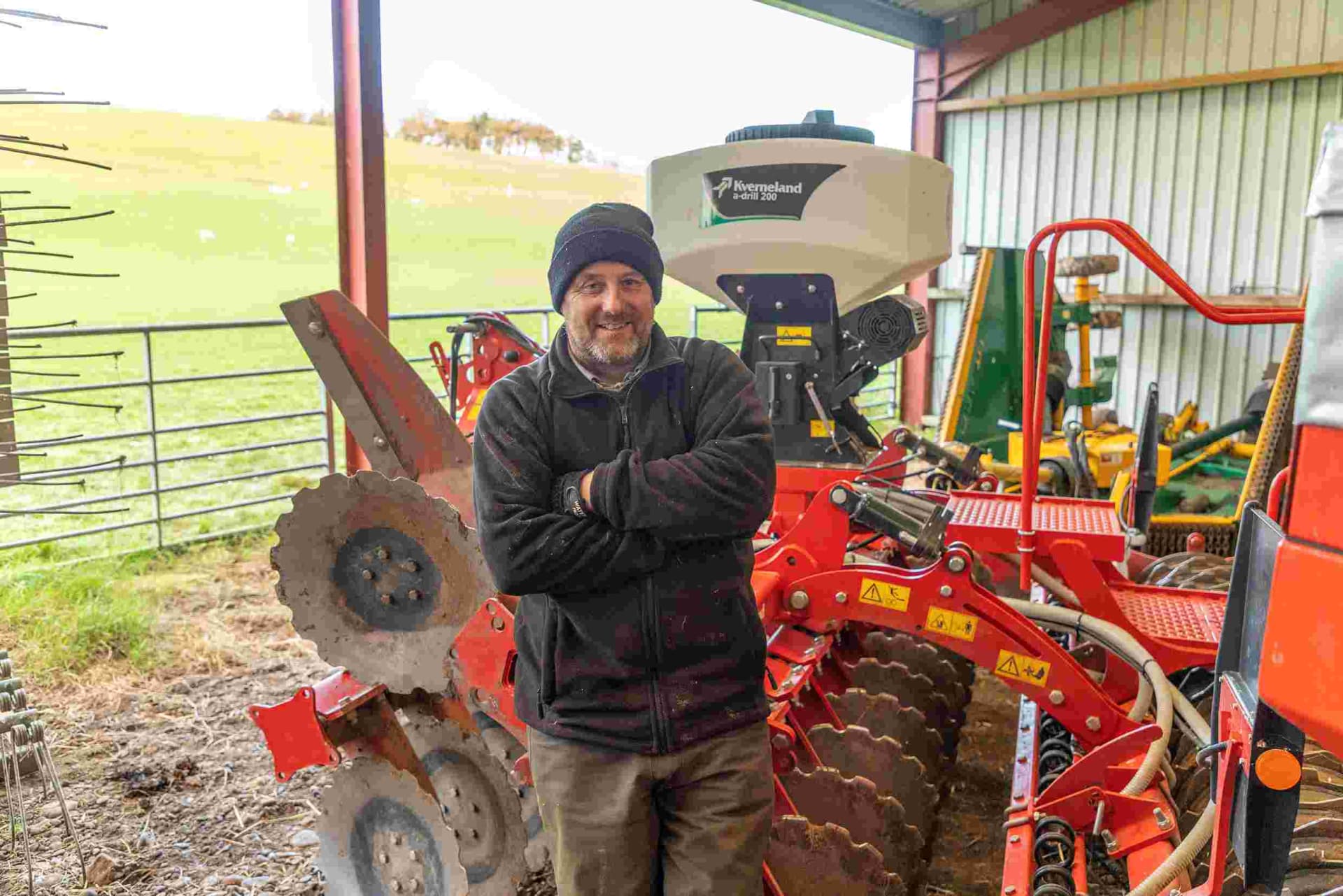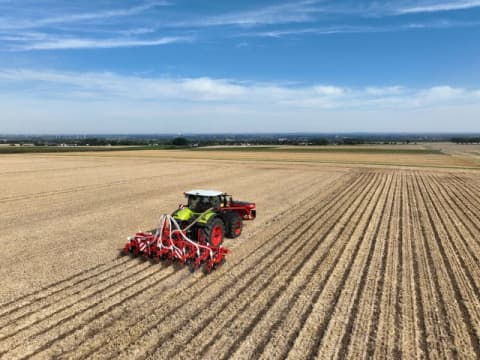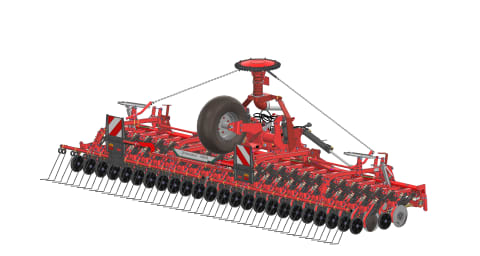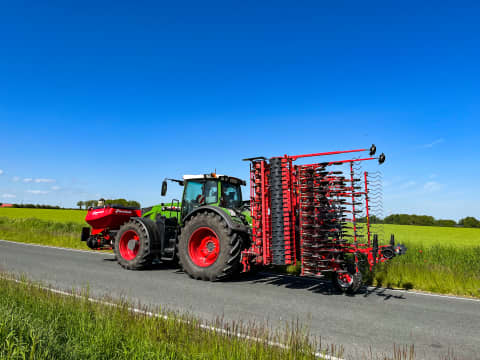David explains that carrying out a more intensive cultivation in areas where establishment needs to be more robust than that from his direct drill, provides his business with greater operational flexibility.
“We can’t plough, there’s just too much stone beneath the surface, so the Qualidisc creates the tilth we need, along with thorough incorporation and mixing of any trash,” he says. “And because the a-drill broadcasts seed ahead of the levelling tines, what comes up is much more of a complete sward, compared to rows of grass 90mm apart if we used our direct drill.”
Mr Hall says that reseeding after sheep have grazed stubble turnips is where the Qualidisc comes into its own.
“It does a great job of lifting and rejuvenating the surface,” he says. “Two shallow passes can create a really good seedbed for establishing medium-term leys.”
In addition to 700 ewes and 40 suckler cows he keeps on the 300-acres he farms, Mr Hall is also an agent for Sinclair McGill covering Cumbria and Northumberland, which sees him supplying grasses and premium seeds, including GS4 herb and legume mixes, under the Lima Grain brand.
With 30 years’ experience under his belt, he has seen a steady shift from short term to medium term leys, to deflect establishment costs.
“There’s now much more emphasis on getting a better seedbed, so we can get medium term leys off to a strong start, for greater longevity,” he says. “And with electric seed metering, I’m no longer restricted to a fixed forward speed.”
Working within a 20-mile radius of Lanerton Farm, he says output is around 6-7 acres/hour travelling at 12-14kph, behind his 150hp four-cylinder tractor.
“The Qualidisc has now become my preferred machine for establishing medium term leys,” he says.





